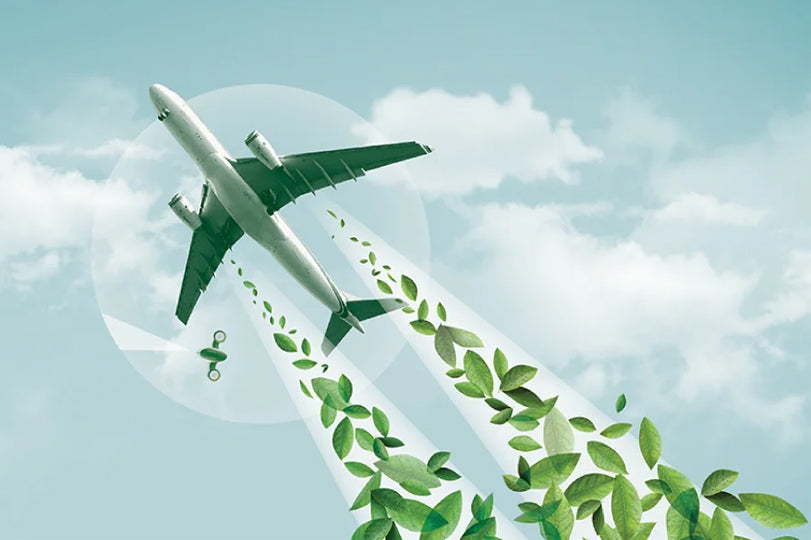This was announced by Grant Shapps as an introduction to the UK’s Department for Transport's new strategy for air travel, which was released last week. The idea is to turnaround the industry and ensure emission-free flying by 2050 … which sounds fantastic and just what every UK citizen who enjoys their holiday wants to hear – but it is a realistic aim?
The plan sets out six targets, the first of which mainly involve encouraging less plane use overall, improving the energy efficiency of aeroplanes themselves, and carbon offsetting. Probably the most ambitious steps are the last two, which describe the use of sustainable fuels and zero emission flights. But how?
Sustainable fuel energy for aviation is being produced right now, from biomass, synthetic fuels and hydrogen fuel technology (making fuel from water and air via electricity). But the issue is scalability – to increase the output of these more environmentally fuels to a commercially viable amount requires a much bigger input of energy in the first place, which somewhat defeats the purpose. This is the first main challenge which needs to be overcome.
Any yet the Government and involved businesses are setting bold aims – a reward is on offer for the first truly sustainably fuelled trans-Atlantic flight, funded by the Government, and Airbus are confident their hydrogen powered planes will be operational by 2035. If the technologies are improved and able to be scalable, there is still the question of cost – the ticket price of that London to New York trip will be way higher than any currently comparable flight.
As an average UK consumer, it would be revolutionary to look forward to an annual holiday abroad without the knowledge that your flights are costing the earth. But when considering the global airline industry, it isn’t the ‘average’ householder or family that is at the heart of the problem.
A spokesperson for Possible, a climate change action group, said the best plan is just to reduce flight use, but they also made the point that it is certain wealthy people who need to hear this message louder than others: “The problem is that 15% of people, the highest earners across the world, take 70% of all flights, for holidays. Business travel is a lot less than it was since COVID, and this sector of the tourism industry are the largest consumers of air travel. These are people who need to be targeted to reduce their flights … we suggest charging those people with a frequent flyer levy and try and reduce overall demand for air travel.”











